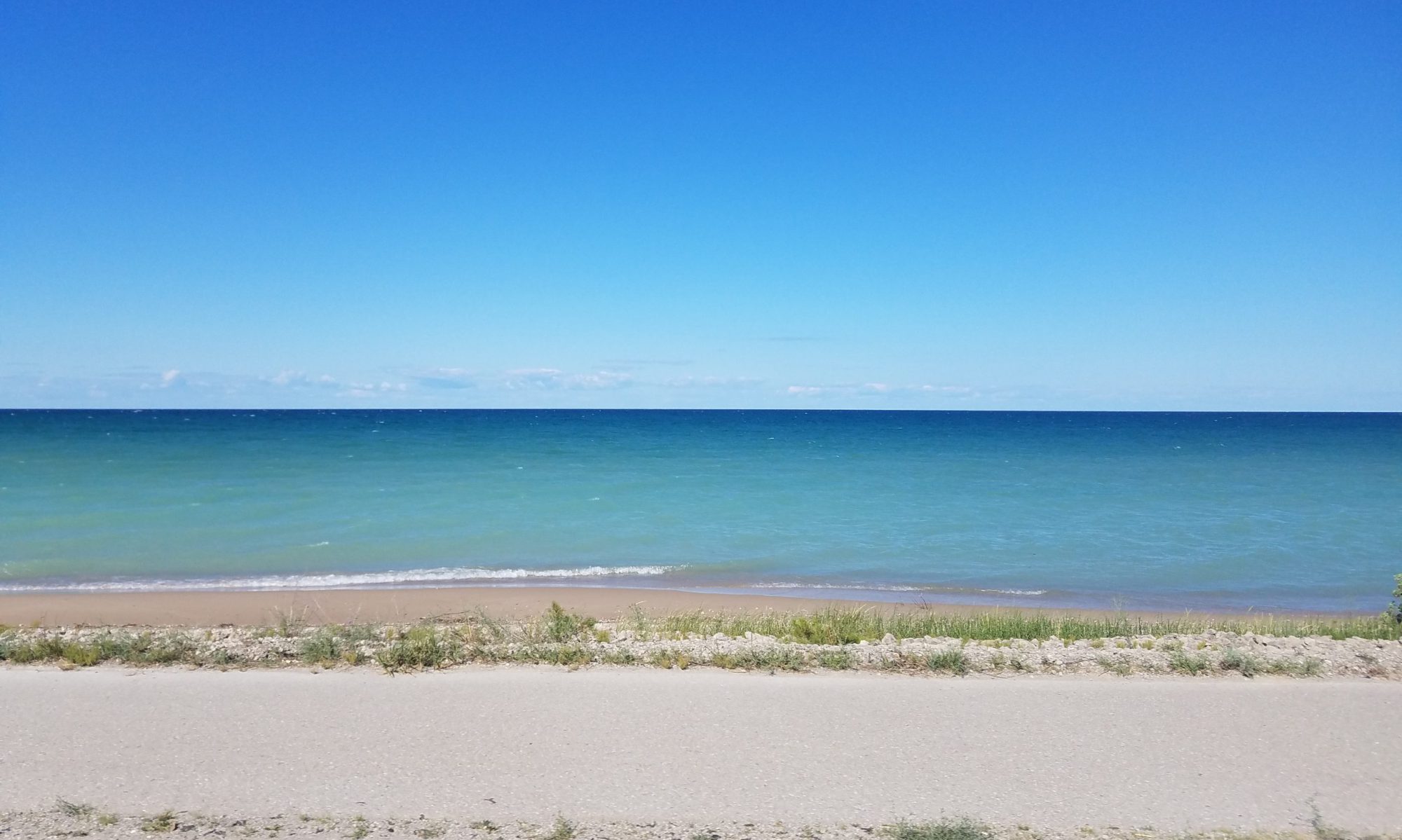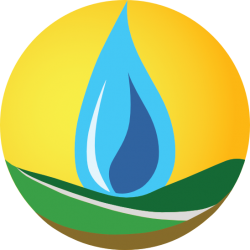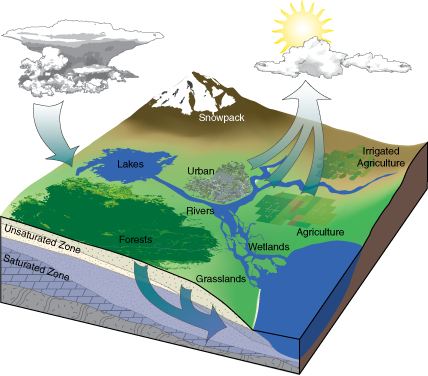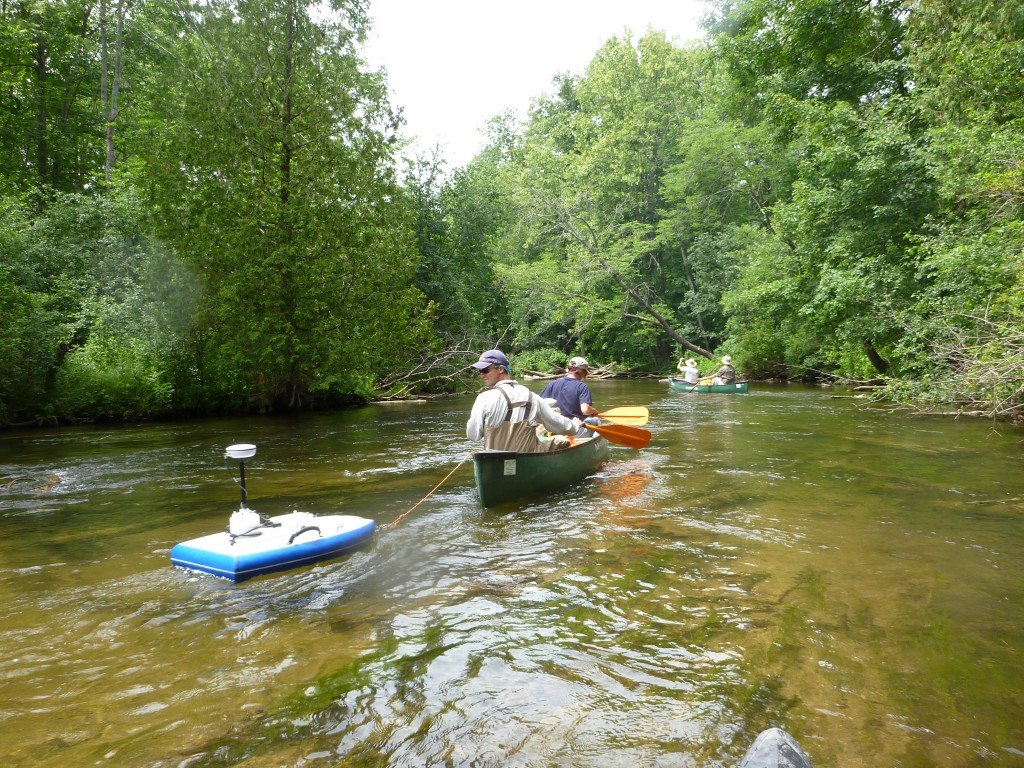Philosophy
Our hydrogeology research program evaluates human impacts on the water cycle through changes in climate and land use. Along the way, we develop novel methods to characterize the aquifers that store and transmit water supplies critical to human and ecological health, and seeks to better understand the role of agroecosystems on the quality and quantity of water supplies.
Our research group couples novel models with high resolution field data to explore the physical, chemical, and ecological processes in natural and anthropogenically altered systems. Hydrogeology is an intrinsically multi-disciplinary field because of the critical role water plays in both human health and natural ecosystems. As a result, much of our research has been done in interdisciplinary teams that span areas of hydrogeology, geochemistry, microbiology, geophysics, civil engineering, ecology, sociology, and economics and engaging undergraduate, graduate, postdoctoral, research associates, research professors, and tenured professors.
We have developed novel methods to evaluate spatial and temporal variations in groundwater recharge at scales that matter to land use and water managers. We have also developed methods to predict ecological health of stream systems by coupling groundwater and ecological models that simulate stream temperature along with the transport and fate of nutrients and associated ecosystem stressors such as low dissolved oxygen levels.
Focus Areas
Landscape Hydrology
Within this focus area, we have developed the Landscape Hydrology Model (LHM), a fully-coupled, process-based integrated hydrologic model for fine-resolution, regional scale simulations.
Forecast climate and land use changes will impact water resources. Those impacts will be determined by complex interactions between ecologic, climatologic, and hydrologic systems and processes. We are particularly interested in the role that groundwater plays in moderating and controlling these interactions, and in the impact of predicted changes on groundwater resources.
Eco- and Agro-hydrology
Climate and land use changes will not only affect water resources, but they will affect water quality and availability for both natural and agricultural ecosystems as well. Mitigating those impacts depends on understanding the systems well enough to forecast possible effects and suggest revised management strategies.
Hydrogeophysics
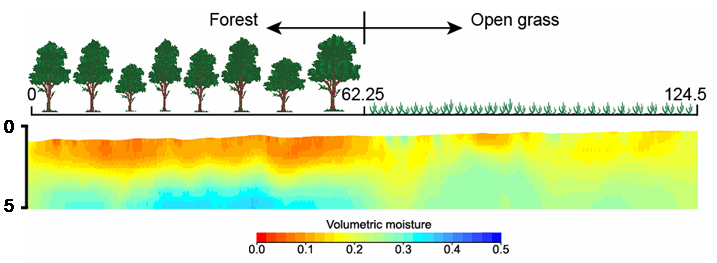
Geophysical methods are capable of measuring and monitoring hydrologic fluxes and determining hydrogeologic properties at point, field, and larger scales. We have several projects that use electrical resistivity tomography (ERT) and ground penetrating radar (GPR) to determine aquifer properties and measure soil moisture changes.
Renewable Energy Landscapes

As our energy landscape shifts from fossil fuels to renewable energies, we will likely convert more than 1% of our contiguous landscape over the next 30 years. Most of this land use change has and will continue to alter agricultural lands. While this shift is absolutely necessary to mitigate many of the consequences of climate change, we have the opportunity to better understand how renewable energy installations interact with local hydrology, society, and agricultural needs. We are particularly interested in how solar photovoltaic (PV) deployment will alter local and regional hydrology. We also hope to understand how these installations can be used to enhance water availability, food security, and energy security for farmers and their communities
Research Projects
Our current research projects span a wide range of disciplines within and beyond hydrogeology, and encompass systems in the Great Lakes, across the CONUS, and worldwide. Most of these projects are interdisciplinary (see our Collaborators page)
Completed Projects
You can find an archive of past research projects here.
